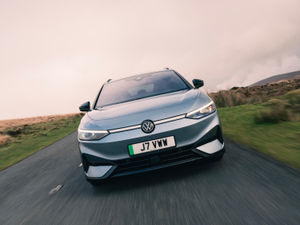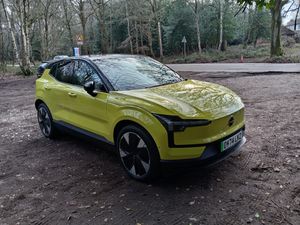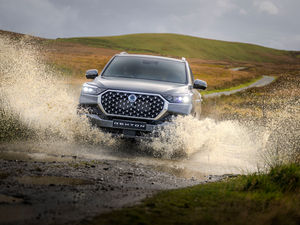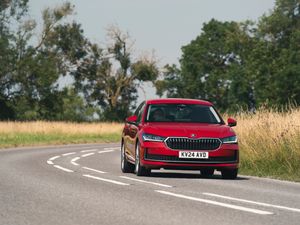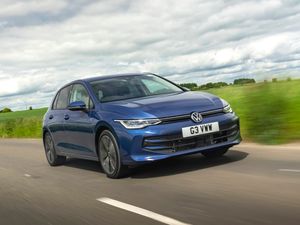First Drive: The Honda e:NY1 arrives as this firm’s first mass-market EV
Honda is expanding its electric line-up with the e:NY1. Ted Welford tries it out
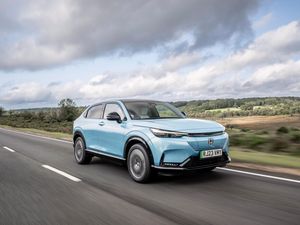
What is it?
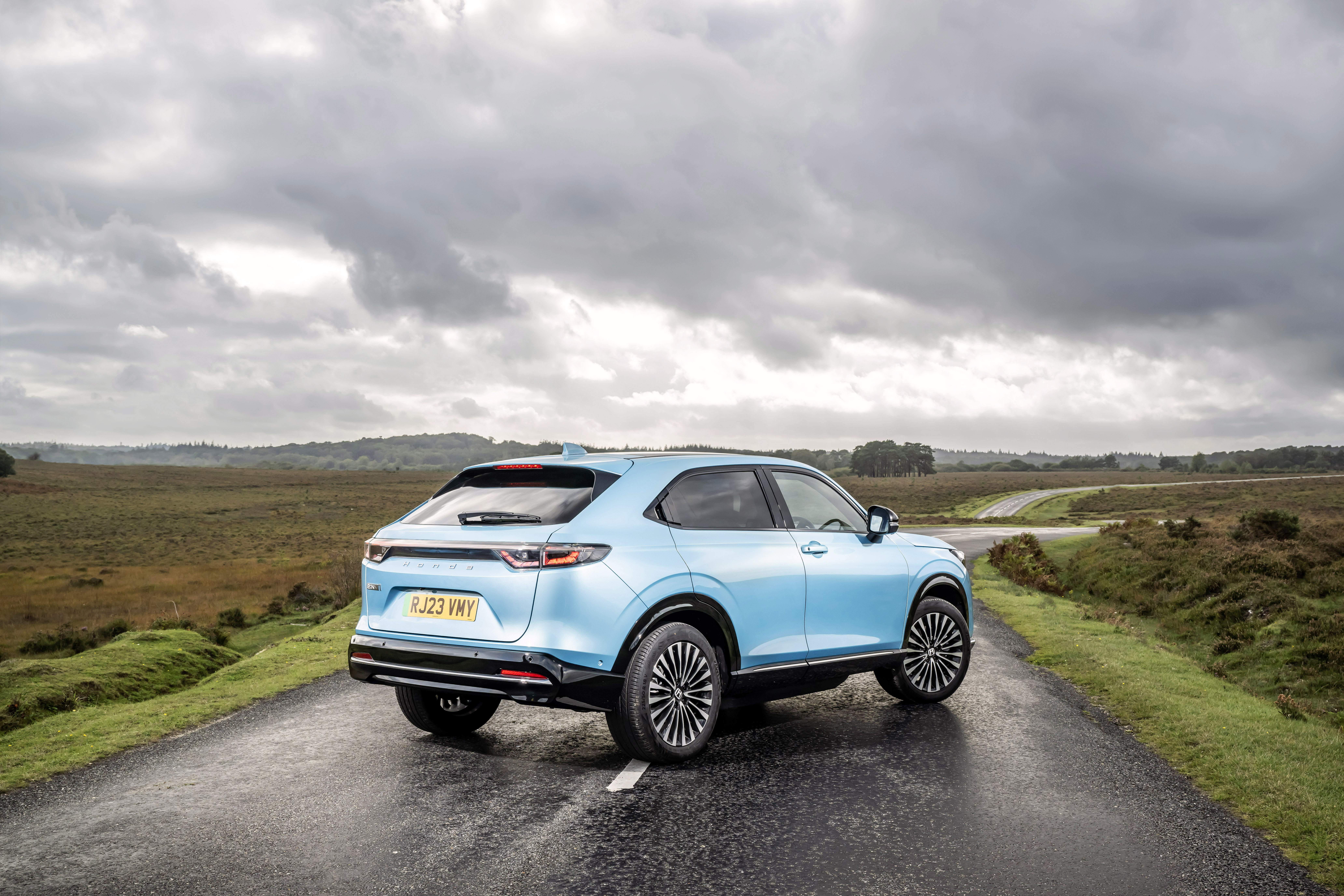
With the exception of the limited-run Civic Type R, every car Honda sells is now either a hybrid or electric. The needle is tipped far closer to the hybrid element than EVs, but Honda is looking to change that.
Up until now, it has only offered one electric car – the ‘e’ city car – but despite its fun styling and tech-laden cabin, a high price and poor range have made it a rare sight on British roads. Honda hopes to build its EV sales significantly with this new model – the e:NY1. It’s a dreadful name, but brings some important new features for Honda and is said to become the ‘heart of its product range’. Let’s see if it’s any good.
What’s new?
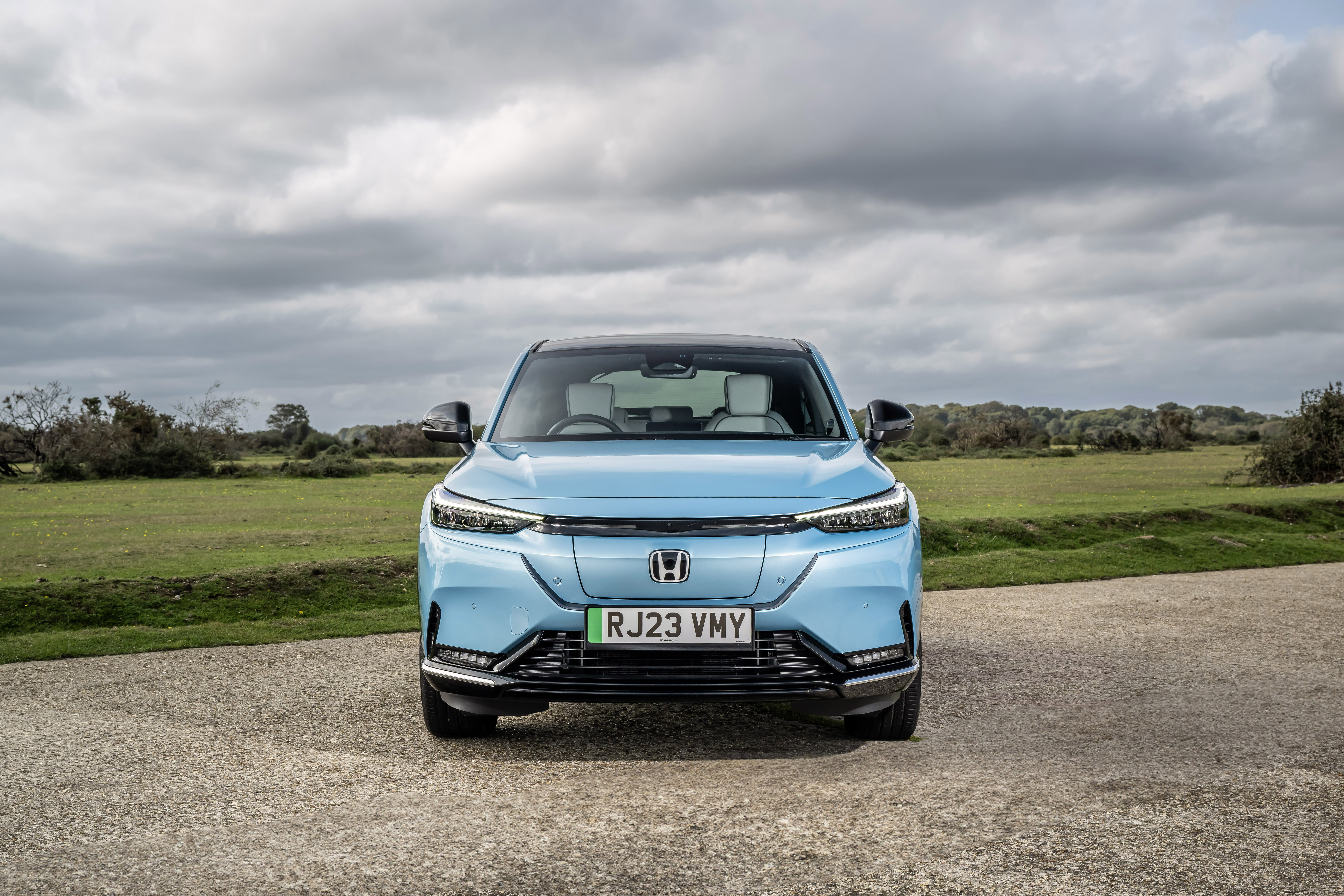
Though the e:Ny1 might look very similar to Honda’s hybrid HR-V crossover, this is a different car under the surface. While the Japanese firm likes to compare it to cars like Toyota’s bZ4X, this is a much smaller car in reality, more in line with the Hyundai Kona Electric.
But it boasts a new powertrain, while a new white logo will be introduced across all future electric Hondas. There’s also a huge 15.1-inch touchscreen fitted across all versions, giving the e:NY1’s cabin a much more modern feel.
What’s under the bonnet?
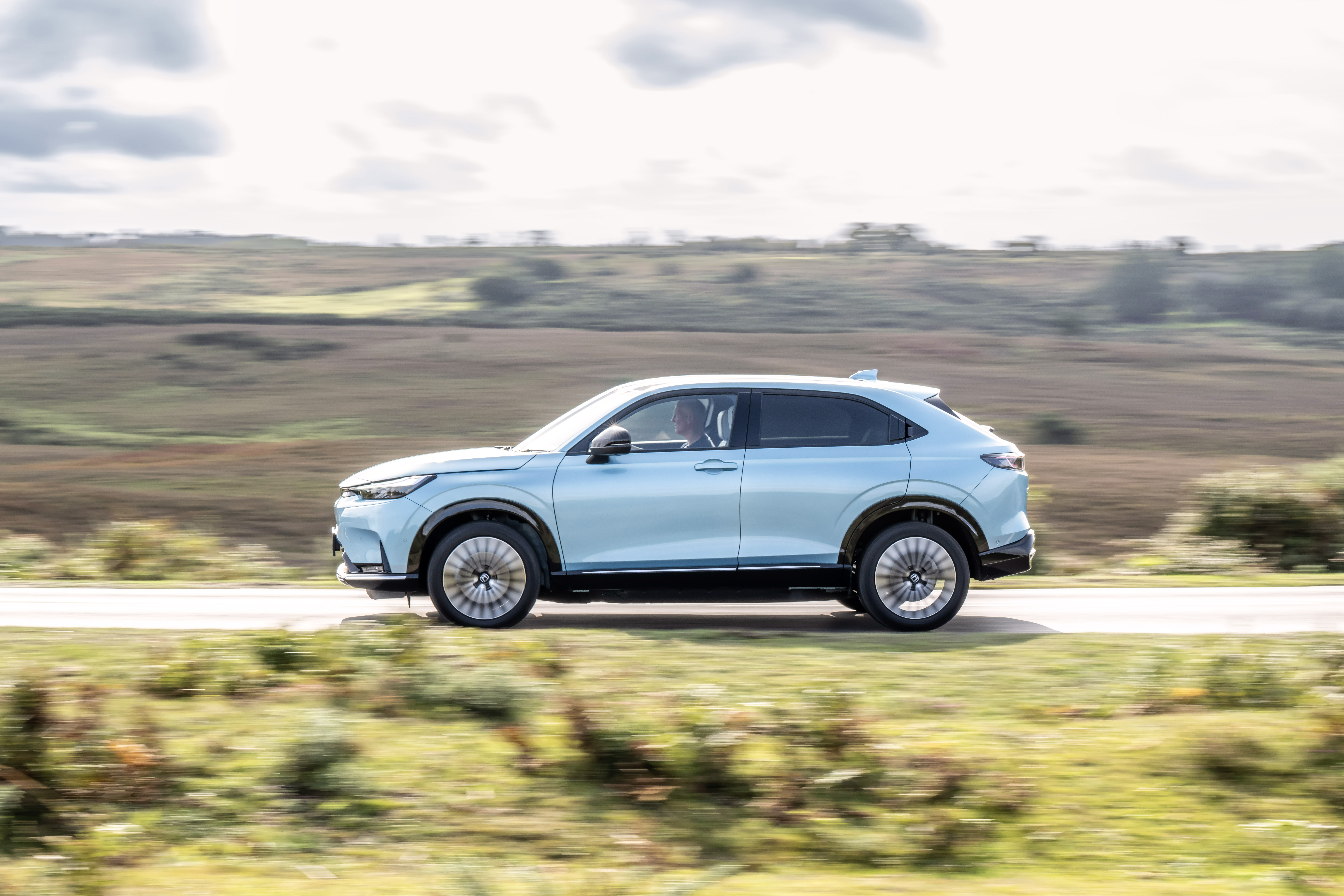
There’s just a single powertrain option on this new Honda, using a 68.8kWh battery (almost twice the size of the firm’s other EV), as well as a front-mounted electric motor producing 201bhp and 310Nm of torque.
Accelerating from 0-60mph takes 7.4 seconds while the top speed is capped at 99mph. In terms of range, Honda claims a fairly average-for-the-market 256 miles. Quite a few of its rivals, such as the Hyundai Kona Electric, are able to travel further, despite using a smaller battery. That said, we found the e:NY1’s range to be fairly reliable, averaging 240 miles on our test route.
In terms of charging, it’s fairly slow to top up too, with a max charging speed of 78kW meaning a 10 to 80 per cent charge will take around 45 minutes. It feels a little behind the times when nearly all its rivals can charge faster.
What’s it like to drive?
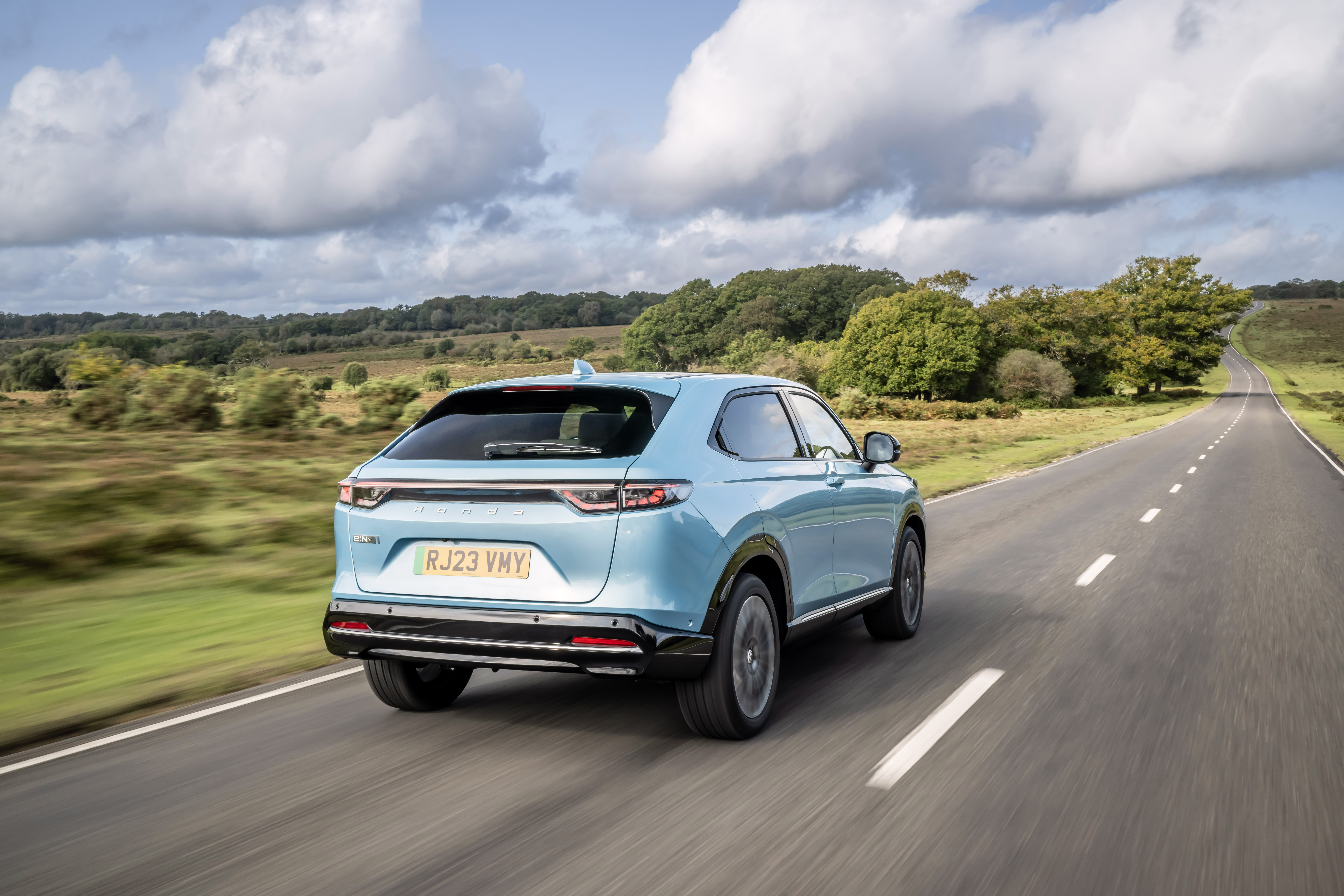
There’s an increasing trend for new EVs to feel a bit tamer in terms of performance, with more of a linear power delivery allowing for a smoother pace. The e:NY1 bucks this trend with an almost erratic pick-up. In fact, if you put your foot to the floor from a standstill, the car torque steers to one side, and even wheelspins at slower speeds. It all feels a little under-engineered in this respect.
But aside from this, the e:NY1 drives well. The handling has quite a weighty feel to it, and it’s all a bit more agile than some of the other cars in this segment, though it’s far from being a ‘hot’ crossover. For most of the time, it rides well, though can be quite unsettled by any larger bumps or ruts in the road.
How does it look?
Given the e:NY1’s new underpinnings, it feels like a wasted – and almost lazy – opportunity to not make the design more different to the HR-V. Granted the HR-V is quite a smart-looking car, and there are differences, as the e:NY1 is a bit longer because of its front bumper, while the grille of the HR-V is replaced by a smoothed section with this EV. This also houses the charging port, which has large flashing lights that can show when the car is charged or if there’s a fault, which is a neat trick.
Around the rear there’s a full-length LED light bar, which, unlike the HR-V, doesn’t have the Honda emblem, but instead the trendy ‘HONDA’ lettering across the boot. There’s also a bold new Aqua Topaz blue colour, though we prefer it in a more subdued shade.
What’s it like inside?
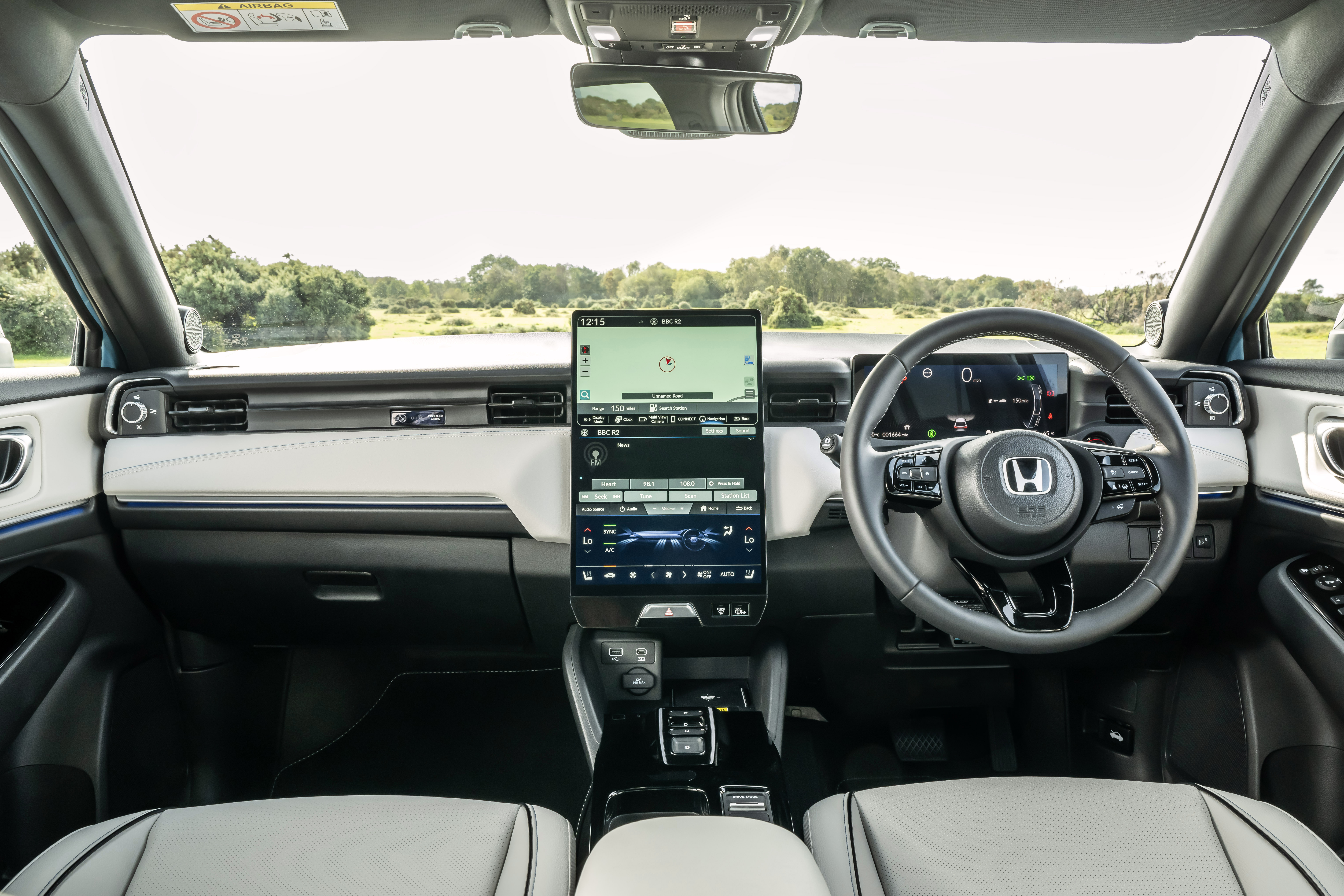
Jump inside the e:NY1 and the first thing you’ll notice is the giant 15.1-inch portrait touchscreen. Despite its size, it’s actually split into three sections – it’s almost like having three screens in one. The top is either the nav or Apple CarPlay, the middle is traditional audio and other settings, and the bottom is a climate menu. It is useful having the three screens always present, and it’s very quick to operate as well.
We do have a few complaints about the quality of the e:NY1, though, and it doesn’t feel as well-built as some other Hondas. The hard-plastic dashboard is disappointing for a car of this price, while the panoramic glass roof fitted to top-spec versions has a manual sunblind in the front, while in the rear you have to unclip these chunky plastic sections with nowhere to store them. It’s a really odd way of doing things.
The e:NY1 offers a good amount of cabin space, though, with a decent amount of room in the rear seats for adults. The 361-litre boot is small, however, not least in comparison to the cars Honda says are rivals.
What’s the spec like?
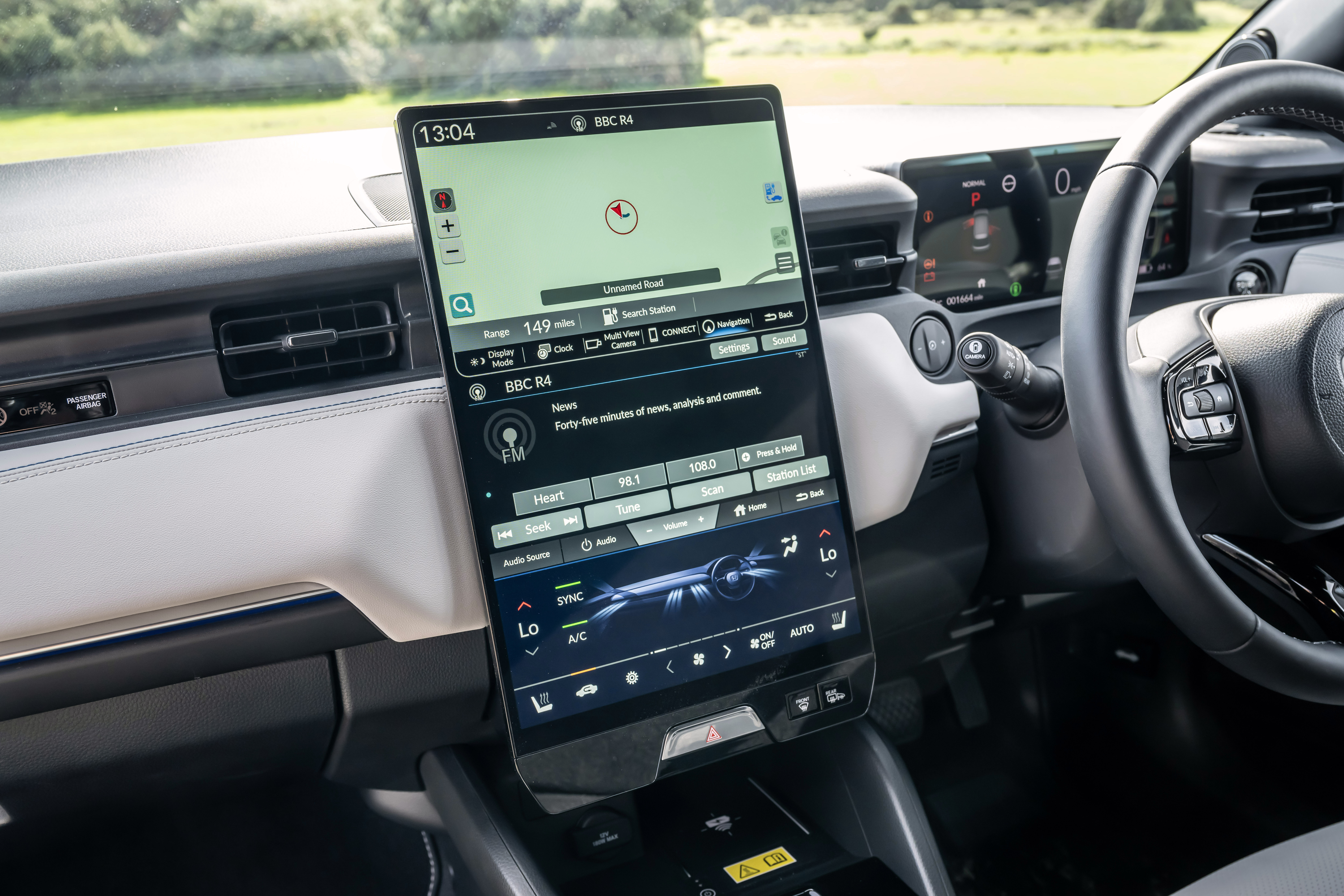
All e:NY1 models come with an impressive range of equipment, with the standard Elegance model coming with the impressive 15.1-inch touchscreen, keyless entry and heated front seats all included as standard. Making the jump to the top-spec Advance brings a glass roof, electric boot and multi-view camera.
One of the main issues with the e:NY1 is its price. The range kicks off from £44,995 for the Elegance and then the Advance comes in at £47,195. By the time you’ve changed the alloy wheels to a different design and added a nice colour, it’s very close to £50,000 – a price it just can’t justify. A range-topping Hyundai Kona Electric quite comfortably undercuts even the standard version of this Honda, while considerably larger electric SUVs like the Skoda Enyaq are cheaper – and they offer more range, too.
Verdict
Honda makes a big deal about the fact the e:NY1 will appeal to first-time EV buyers, but in the process, we’d argue it has played far too safe with this SUV. It’s a class that’s getting increasingly crowded, and when many of its rivals are cheaper, can travel more miles and can be topped up on electricity much quicker, it makes it a tough sell.
Though we can see the appeal of the e:NY1’s familiarity, particularly to existing Honda customers – and especially those driving the HR-V – alternatives like the Hyundai Kona Electric make a lot more sense.

